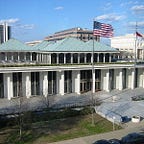General Assembly Unanimously Passes $1.6 Billion COVID-19 Recovery Bill
Raleigh, N.C. — Today, the North Carolina General Assembly unanimously passed COVID-19 relief and recovery legislation that spends and reserves nearly $1.6 billion.
The compromise spending plan is a significant investment laying the groundwork for moving the state forward and responding to the economic and human impacts of this pandemic. This commitment goes above and beyond previous requests and includes funding for testing, tracing, immediate recovery needs, and increasing access to broadband and electronic devices to access remote learning opportunities.
“This legislation puts North Carolina on the right path to recovery,” Senate Leader Phil Berger (R-Rockingham), Senate Minority Leader Dan Blue (D-Wake), House Speaker Tim Moore (R-Cleveland), and House Minority Leader Darren Jackson (D-Wake) said. “For weeks, our citizens have been anxious about their future because of this virus, and today we can assure them that action is being taken to allay their concerns.”
The bill addresses both immediate needs, like purchasing personal protective equipment and expanding digital infrastructure needs, and long-term research and development to fight the virus. It supports testing for uninsured patients, rural and under-served communities, and behavioral health services.
“This recovery and relief bill is the product of bipartisan collaboration to help North Carolinians return to their daily lives,” Sens. Berger, Blue, Speaker Moore, and Rep. Jackson said. “Our citizens have stepped up to support each other during this unprecedented time, and now we must look ahead to getting everyone healthy and back to work safely.”
Appropriations include:
- $75 million for school nutrition
- $1 million for the Department of Public Instruction to improve internet connectivity for students through the use of mobile Wi-Fi hotspots on buses
- $11 million for the Department of Public Instruction to improve internet connectivity for students by providing internet access devices
- $30 million for schools to purchase devices for students in response to COVID-19
- $5 million for electronic devices for school staff in response to COVID-19
- $4.5 million for cybersecurity
- $10 million for student health programs
- $70 million for summer learning programs
- $1.48 million for enhancing the state’s learning management platform
- $3 million for non-digital learning instructional resources
- $15 million for exception children programs
- $660,029 for residential schools
- $5 million for the Department Public Instruction’s Extended Learning and Integrated Student Supports (ELISS) Grants
- $25 million for the Community College System to respond to COVID-19 impacts
- $44.4 million for the UNC System to respond to COVID-19 impacts
- $20 million for independent and private colleges to respond to COVID-19 impacts
- $85.1 million for COVID-19 research, including $29 million for the UNC Collaboratory, $20 million for Wake Forest University Health Services, $15 million for Duke University’s Human Vaccine Institute, $15 million to the Brody School of Medicine at East Carolina University, and $6 million to the Campbell University School of Osteopathic Medicine
- $25 million for testing, tracing, and trends related to COVID-19
- $20 million for additional public health capacity, including increasing nursing capacity, number of community health workers, telehealth services and providing infection control support and training in nursing homes and adult care homes
- $20 million for enhanced behavioral health and crisis services to respond to COVID-19, including diverting individuals experiencing behavioral health emergencies from emergency departments
- $50 million for purchasing additional PPE
- $19 million for food, safety, shelter, and child care
- $6 million for food banks
- $2.25 million for foster care support
- $25 million for facilities that serve Special Assistance recipients
- $50 million for rural and under-served communities
- $65 million for rural hospital support
- $5 million for free and charitable clinics
- $1.5 million for NC MedAssist
- $15 million for the Teaching Hospitals Relief Fund
- $15 million for the General Hospital Relief Fund
- $300 million for the DOT Coronavirus Relief Fund, if allowed by the federal government
- $150 million for local government grants to support immediate COVID-19 needs
- $150 million for the Local Government Coronavirus Relief Reserve, if allowed by the federal government
- $20 million to support fee-supported state operations, if allowed by the federal government
- $70 million for continuity of government operation needs, including covering overtime costs, purchasing PPE, sanitation and hygienic supplies, and critical information technology equipment
- $15 million for animal depopulation and disposal
- $125 million for small business loans through Golden LEAF
- $290,000 for the LINKS program
- $5 million for the Association of Community Health Centers
- $5 million for Visit NC marketing
- $1.8 million for the Old North State Medical Society
- $9 million for the GREAT program to expand access to broadband internet
